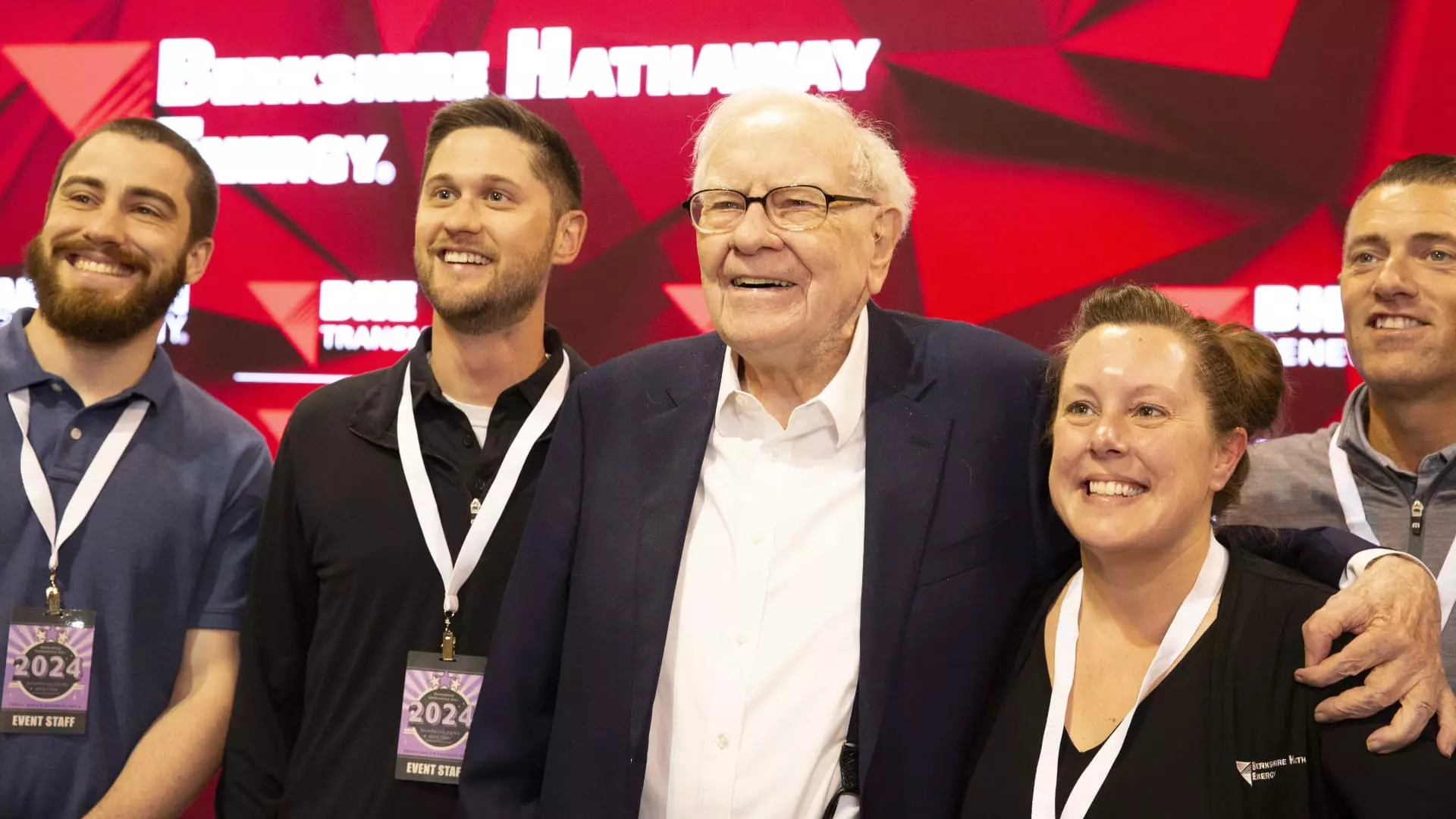Berkshire Hathaway, the conglomerate led by legendary investor Warren Buffett, is facing scrutiny over its cash reserves, which are expected to surpass $200 billion in the upcoming quarter. This substantial amount exceeds the entire annual GDP of Hungary, emphasizing the magnitude of Berkshire’s cash holdings. This cash hoard is on track to exceed the previous record of $189 billion set in the first quarter of the year. The looming increase in Berkshire’s cash pile comes as Buffett makes the rare move of selling off some of his favorite stocks, including Apple, Bank of America, and BYD. This shift in strategy has raised questions about Buffett’s outlook on the market and his decision-making process.
The decision to sell off winning investments such as Apple and Bank of America has led some analysts to speculate that Buffett is looking to de-risk the portfolio amidst concerns about an overheated market. Buffett significantly reduced his stake in Apple by 13% in the first quarter, citing tax reasons and substantial gains. The recent selling of Bank of America shares, the second-largest holding after Apple, has surprised many investors. Berkshire has been consistently selling off stocks for the past six quarters, indicating a deliberate shift in its investment strategy.
Market Sentiment and Contrarian View
One of the critical factors influencing Buffett’s recent moves is the prevailing market sentiment. The current market conditions, characterized by a strong belief in a soft landing, have prompted Buffett to take a more contrarian view. The decision to trim holdings in economically sensitive sectors such as technology and banking suggests a cautious approach to risk management. As the market continues to exhibit exuberance, Buffett’s actions reflect a more conservative stance.
Challenges and Opportunities
Despite the significant cash reserves, Berkshire faces challenges in deploying its capital effectively. The changing interest rate environment and declining Treasury yields pose a dilemma for Buffett in terms of generating returns on the cash pile. While the cash hoard has been earning substantial returns in recent years, the anticipated drop in interest rates could impact future earnings. Buffett’s hesitance to invest in high-priced assets underscores the importance of finding opportunities with minimal risk and high potential returns.
Investors are closely monitoring Berkshire’s quarterly results, particularly in its non-insurance businesses like BNSF Railway and Berkshire Hathway Energy. Both sectors have exhibited signs of weakness, with challenges ranging from wage increases to liability exposure from wildfires. While the insurance business has been a bright spot for Berkshire, concerns remain about the overall performance of the conglomerate in the current economic environment. Despite the strong rally in Berkshire’s stock price this year, there are lingering questions about the sustainability of its growth trajectory.
Berkshire Hathaway’s cash situation represents a balancing act between capital preservation and growth opportunities. Buffett’s strategic decisions to sell off stocks and increase cash reserves highlight the cautious approach adopted by the investment firm in response to market conditions. As Berkshire navigates through a challenging economic landscape, the key will be to strike a balance between risk management and capital deployment to drive long-term value for shareholders.

